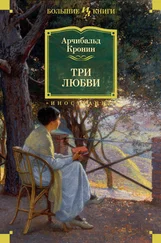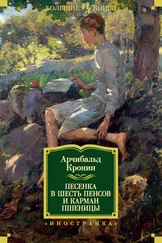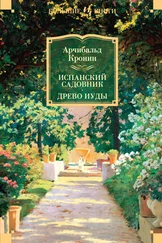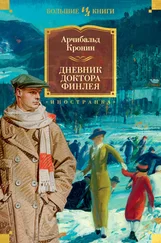Арчибальд Кронин - Hatter's Castle
Здесь есть возможность читать онлайн «Арчибальд Кронин - Hatter's Castle» весь текст электронной книги совершенно бесплатно (целиком полную версию без сокращений). В некоторых случаях можно слушать аудио, скачать через торрент в формате fb2 и присутствует краткое содержание. Жанр: Классическая проза, на английском языке. Описание произведения, (предисловие) а так же отзывы посетителей доступны на портале библиотеки ЛибКат.
- Название:Hatter's Castle
- Автор:
- Жанр:
- Год:неизвестен
- ISBN:нет данных
- Рейтинг книги:4 / 5. Голосов: 1
-
Избранное:Добавить в избранное
- Отзывы:
-
Ваша оценка:
- 80
- 1
- 2
- 3
- 4
- 5
Hatter's Castle: краткое содержание, описание и аннотация
Предлагаем к чтению аннотацию, описание, краткое содержание или предисловие (зависит от того, что написал сам автор книги «Hatter's Castle»). Если вы не нашли необходимую информацию о книге — напишите в комментариях, мы постараемся отыскать её.
Hatter's Castle — читать онлайн бесплатно полную книгу (весь текст) целиком
Ниже представлен текст книги, разбитый по страницам. Система сохранения места последней прочитанной страницы, позволяет с удобством читать онлайн бесплатно книгу «Hatter's Castle», без необходимости каждый раз заново искать на чём Вы остановились. Поставьте закладку, и сможете в любой момент перейти на страницу, на которой закончили чтение.
Интервал:
Закладка:
"No! No! Uric," Brodie had sneered. "I'll only come back to ye if ye don't give me what I'm askin' for, and then it'll not be pleasant hearin' for ye. Get ahead wi' it now and don't blabber so much."
The plans had been prepared, passed by Brodie, and the building begun. From day to day he had seen it grow, going along in the cool evenings to the slowly mantling building, observing the exact adherence to his design, gloating over the smooth, white stone, testing the mortar between his fingers, caressing the shining lead pipes, weighing and fingering approvingly the heavy square slates. Everything had been of the best materials, and though this had taken heavy toll upon his purse, had in fact drained it for he had always spent money freely upon himself, would indeed never have saved but for this one object he was proud to have achieved it, proud to have left the rented house in Levengrove Place, proud in the possession of the inmost desire of his heart. He was right too. Nobody
laughed openly. One night, shortly after the house had been completed, a loafer at the Cross stepped out from the toping gang that loitered there and accosted Brodie.
"Good evening, Mr. Brodie," he hiccoughed, looking round at his fellows for approbation, then back at Brodie. "And how is the castle to-night?"
Brodie looked at him calmly. "Better than you," he replied, and smashed his fist with terrific violence into the rowdy's face, then, taking the clean linen handkerchief from his pocket, and wiping the blood from his knuckles, he threw it contemptuously on the ground beside the fallen man and walked quietly away.
Certainly Brodie's position in the town had altered sensibly in these last five years, and since the building of his house he was regarded with more significance, detachment, and misgiving; his social value increased at the price of singularity and he became gradually a more notable figure, with many acquaintances and no friends.
Now he took a final look at his property, squared his shoulders, and set off down the road. He had not proceeded far before he caught a glimpse of a peering face from behind the front-room curtains of one of the semi-detached houses farther down, and he jeered inwardly to see that it was little Pettigrew, the grocer, who had recently moved into the select neighbourhood and had at first sought to establish himself by walking ingratiatingly to the town with Brodie. The big man had tolerated this liberty for the first day, but when on the second morning he found the diminutive, unimportant grocer again waiting for him, he had stopped short. "Pettigrew," he had said calmly, "I'm afraid I'm not seein' so weel this mornin'. You're kind o' wee and shilpet to me the day and to-morrow I mightna see you ava'. Besides, I'm a fast walker. Gang your own gait, man, but don't strain your bandy wee legs keepin' pace with me. Good morning to you." Now he smiled sardonically as he passed the house, reflecting that since then the nervous Pettigrew had avoided him like a plague and had formed the habit of watching him well out of sight before venturing into the street.
Soon he had traversed the quieter residential district and entered the town where, at the south end of Church Street, an artisan carrying his bag of tools touched his cap to him in passing. Brodie's chest expanded at this act of deference, accorded only to the most important figures in the town. "Good morning to you," he cried affably, setting his head farther back in a proud geniality, marching around the corner into the High Street with his stick over his shoulder, and tramping up the incline like a soldier until he reached the crest of this main thoroughfare. There he stopped opposite an inconspicuous shop. The shop was old and quiet, with a narrow, unostentatious front marked by a small single window that displayed no merchandise, but masked its face discreetly behind an interior screen of fine meshed wire, which, though it veiled the window revealed the hidden secret of the shop by bearing upon its drawn grey filigree, in faded gilt lettering, the one word Hatter. It was, then, apparently a hat shop, but although it held the most commanding situation in the town, it not only disguised its character but seemed to remove itself from public observation, receding slightly from the common frontage of the street and permitting the adjacent buildings to project beyond and above it, as though it wished to remain, despite the fixed solidity of its position, as unobserved and unobtrusive as it might, reserving its contents, and striving to conceal itself and all that lay within from vulgar, prying eyes. Above its doorway the sign, too, was bleached by age and weather, its paint finely cracked by sun and smoothly washed by rain; but, still distinguishable upon it in thin, sloped letters across its surface, was the name James Brodie. This was Brodie's shop. Each morning, as he regarded it, the fact that he should possess it never failed to amuse him, and for twenty years he had inwardly regarded his business with a tolerant derision. It was of course the sole means of his livelihood, the unimpressive source of his stately and inspiring habitation, its solid, steady business the origin of his fine clothes and the money he rattled so easily in his pockets; yet his attitude towards it was that of a man who views with
an indulgent yet contemptuous air some trifling and unbecoming foible within his own nature. He Brodie was a hatter! He was not ashamed of the fact, but gloried in its ridiculous incongruity, revelled in the contrast between himself and the profession of his adoption which he knew must continually present itself to the world at large. He turned and surveyed the street from his elevated position like a monarch offering himself freely to the public gaze. He was only a hatter! The richness of the absurdity of his position was always before him, inevitably appealed to him, and now an internal diversion shook him as he moved into his shop to start another day's work.
Inside, the shop was dark, neglected, and almost dingy, its dim interior bisected by a long counter which ran the length of the room, acting as a barrier between the public and the private divisions of the establishment and bearing upon its worn, indented surface at one end a graduated series of tarnished brass stands, each supporting a kat or cap of different style and colour. At the other distant end, the counter joined the wall as a ledge capable of elevation, thus permitting ingress to a short row of steps leading to a door with a ground-glass
window on which was inscribed the word Office. Running backwards, beside and underneath this elevated compartment, was a small L-shaped cupboard of a back shop that, deprived of its original dimensions by the more recent imposition of the Office, contained with some difficulty in its limited extent an ironing board and an iron stove which, with its perpetual blast, dried more thoroughly the already sapless and vitiated air. In the shop itself the walls were covered in a drab crimson paper upon which hung several old prints; although few hats were to be seen and upon these no prices were displayed, behind the counter stood a series of wide mahogany drawers for caps and a long line of shelves upon which stacks of cardboard boxes ranged from floor to ceiling.
Behind the counter, and in front of this abundant but hidden stock, stood a young man whose appearance suggested that his stock of virtues must also be concealed. He was thin, with an etiolated countenance which palely protested against the lack of sunlight in the shop and which was faintly pitted with honourable scars gained in his perpetual struggle against an addiction to boils, a disorder to which he was unhappily subject, attributed by his devoted mother to thin blood and against which she continually fortified him with Pepper's Quinine and Iron tonic.
The general engaging aspect of his features was not, however, marred to any extent by these minor blemishes, nor by a small but obtrusive wart which had most inconsiderately chosen its location upon the extremity of his nose, and was well set off by a shock of dark hair, feathered, despite its careful oiling, and so frosted with dandruff that it shed its surplus flakes and formed a perpetual rime upon his coat collar.
Читать дальшеИнтервал:
Закладка:
Похожие книги на «Hatter's Castle»
Представляем Вашему вниманию похожие книги на «Hatter's Castle» списком для выбора. Мы отобрали схожую по названию и смыслу литературу в надежде предоставить читателям больше вариантов отыскать новые, интересные, ещё непрочитанные произведения.
Обсуждение, отзывы о книге «Hatter's Castle» и просто собственные мнения читателей. Оставьте ваши комментарии, напишите, что Вы думаете о произведении, его смысле или главных героях. Укажите что конкретно понравилось, а что нет, и почему Вы так считаете.



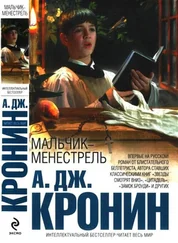
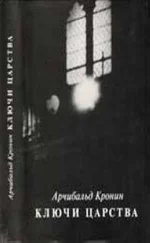
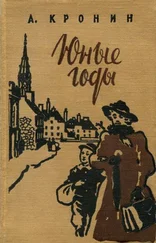
![Арчибальд Кронин - Вычеркнутый из жизни. Северный свет [сборник litres]](/books/392060/archibald-kronin-vycherknutyj-iz-zhizni-severnyj-sv-thumb.webp)
